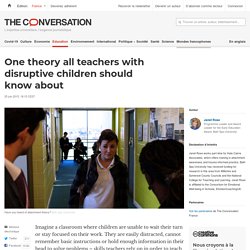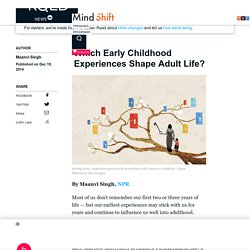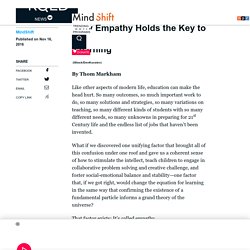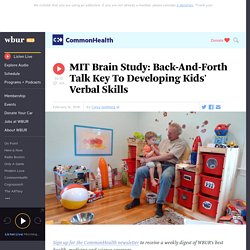

Kotiunikoulut - Mannerheimin Lastensuojeluliitto. Free online games, songs, stories and act... Five essential tips for teaching very young children English. Are you daunted by the prospect of teaching English to very young children? Sheona Gilmour, lead educator on our new online course for teachers and parents, offers a few tips. Teaching English to very young children can be challenging, especially if you haven't done any training for the early years classroom.
The first time I walked into a kindergarten, I didn’t want to go back the next day. Useful comments and conversations June July2018. Scarymommy. Imagine living in a world that valued kindness enough to teach it along with academics. Educators would teach kids to manage their emotions in addition to standard curriculum such as math and science. Sounds pretty amazing, doesn’t it? Well, the Center for Healthy Minds at the University of Wisconsin-Madison has created a free “kindness curriculum” for kids, designed to do just that.
21 Of The Best Early Years Books For International Friendship Day. We know that skills like empathy aren’t fully developed until later in a child’s life, which is why there are so many stories on friendship and how to treat people aimed at Early Years. International Friendship Day, then, is a great opportunity to share some of these amazing books with your children.
It does, however, fall on Sunday 30 July. So celebrating on the day itself is going to be difficult, doubly so for Reception classes who are on summer holidays. Here are our picks for some top tales that touch on various aspects of friendship that kids will love. 1 | Bubble Trouble. A 19-Year Study Reveals Kindergarten Students With These 2 Skills Are Twice a... Scarymommy. One day, when my oldest daughter was not quite 2, she wouldn’t sit still to let me change her diaper. Squirrelly and writhing, she made a game out of staying half naked. She wasn’t fussing about it or anything — in fact, she was giggling maniacally.
The problem was that we were running late. Nothing I did seemed to faze her. I tried distracting her with a toy. One theory all teachers with disruptive children should know about. Imagine a classroom where children are unable to wait their turn or stay focused on their work.

They are easily distracted, cannot remember basic instructions or hold enough information in their head to solve problems – skills teachers rely on in order to teach successfully. These behavioural issues are all examples of problems that can arise from attachment issues – based on the relationship between children and their main caregiver. Attachment theory is now one of the world’s most well-researched theories about human development. It was first proposed by the 20th-century British psychiatrist John Bowlby, who considered that children needed to develop a secure attachment with their main caregiver via sufficiently consistent, responsive, sensitive, appropriate and predictable care and support. Research has shown that secure attachments create mental processes that enable a child to regulate emotions and attune to others.
Can Free Play Prevent Depression and Anxiety In Kids? Public Media for Northern CA. Babies and toddlers raised in supportive and caring home environments tended to do better on standardized tests later on, and they were more likely to attain higher degrees as adults.

They were also more likely to get along with their peers and feel satisfied in their romantic relationships. "It seems like, at least in these early years, the parents' role is to communicate with the child and let them know, 'I'm here for you when you're upset, when you need me. And when you don't need me, I'm your cheerleader,' " says Lee Raby, a psychologist and postdoctoral researcher at the University of Delaware who led the study. Raby used data collected from 243 people who participated in the Minnesota Longitudinal Study of Risk.
All the participants were followed from birth until they turned 32. Public Media for Northern CA. To make that argument requires a deep dive into the profound nature of empathy.

Right now, empathy roughly equates to “I like you and am willing to tolerate you regardless of differences because I am a good person.” But the textbook definition hints at something more profound: It’s ‘the feeling of being able to understand and share another person’s experiences and emotions.’ Key Person & Attachment - Early Years Matters. The Key Person Children thrive from a base of loving and secure relationships. This is normally provided by a child’s parents but it can also be provided by a key person. A key person is a named member of staff with responsibilities for a small group of children who helps those children in the group feel safe and cared for. How Are Happiness and Learning Connected? As teachers, we also know that when students' affective filters or defenses are sky high, fight or flight responses will be modus operandi.
A room full of defensive behaviors (withdrawn, angry) is a sad, unproductive place to teach and learn. Now let's flip it and take a look at how much more we are able to learn when we are in harmony with the people and things in any given educational environment. Being in harmony means feeling safe, feeling valued and a necessary part a group, and in this case, a learning community. Hearts and Minds in Sync What does research show to be the opposite of the brain's fight or flight response? What to consider when teaching English in large classes. How many students do you teach? Do you feel that your classes are too big? Author and education consultant Jason Anderson looks at the issues and offers some potential solutions.
For many of us, our classes are larger than we would like them to be. Whole Child Development Is Undervalued. The question is how to make such an approach both systemic and sustainable. Whole Person Socio-emotional, physical, creative, and cognitive capacities are deeply intertwined and equally important in ensuring a child's wellbeing, learning, and growth. (That shouldn't be a surprise to anyone studying or supporting children's learning.) The Art of Control. Executive function — our ability to remember and use what we know, defeat our unproductive impulses, and switch gears and adjust to new demands — is increasingly understood as a key element not just of learning but of lifelong success.
Researchers at the Center on the Developing Child at Harvard University describe executive function as an air traffic control system for the mind — helping us manage streams of information, revise plans, stay organized, filter out distractions, cope with stress, and make healthy decisions. Children learn these skills first from their parents, through reliable routines, meaningful and responsive interactions, and play that focuses attention and stirs the beginnings of self-control. But when home is not stable, or in situations of neglect or abuse, executive function skills may be impaired, or may not develop at all, limiting a child’s success in elementary school and later life. Imaginary Play Support it by: Practical tips. By Opal Dunn, educational consultant and author Introduction Young children learn English differently from most adults.

Most have an innate ability to pick up English while taking part in activities, by making sense of what they are doing and picking up the adult’s language that accompanies the activity. The Brain-Changing Power of Conversation. The Science Researchers used highly faithful audio recorders — a system called Language Environment Analysis (known as LENA) — to capture every word spoken or heard by 36 4–6 year olds from various socioeconomic backgrounds over two full days. The recordings were analyzed to measure the number of words spoken by each child, the number of words spoken to each child, and the number of conversational turns — back-and-forth exchanges initiated by either adult or child. MIT Brain Study: Back-And-Forth Talk Key To Developing Kids' Verbal Skills.
Sign up for the CommonHealth newsletter to receive a weekly digest of WBUR’s best health, medicine and science coverage.

New MIT research finds that for children's brain development, parents don't just need to talk to their kids — it's important to talk with them, in back-and-forth exchanges. Story continues below. Interesting books. Carol Dweck: The power of believing that you can improve. How can parents and teachers best educate young children? Teaching English to learners with Special Educational Needs (SENs) – Myths an... Neurodiversity_TfS_online_conference. I Said I Want the Red Bowl! Responding to Toddlers' Irrational Behavior - Exp... FAQ: Raising Bilingual Children. Deconstructing Role Play – Provide the Resources, Step Back and Watch Childre...
Symbolic play and language development. The cognitive benefits of play: Effects on the learning brain. Why Movement is Essential in Early Childhood. Play to Learn. Taking Playtime Seriously. Dr_david_whitebread_-_the_importance_of_play.pdf. How do you speak 'Motherese'? The Woman Who Changed Her Brain: Barbara Arrowsmith-Young at TEDxToronto. Early childhood development – it’s not rocket science, it’s neuroscience! - K... Deb Roy: The birth of a word.
Listen to Your Mother. Let's Talk. Why does my toddler love repetition? How can I help my child to start talking? (Video)